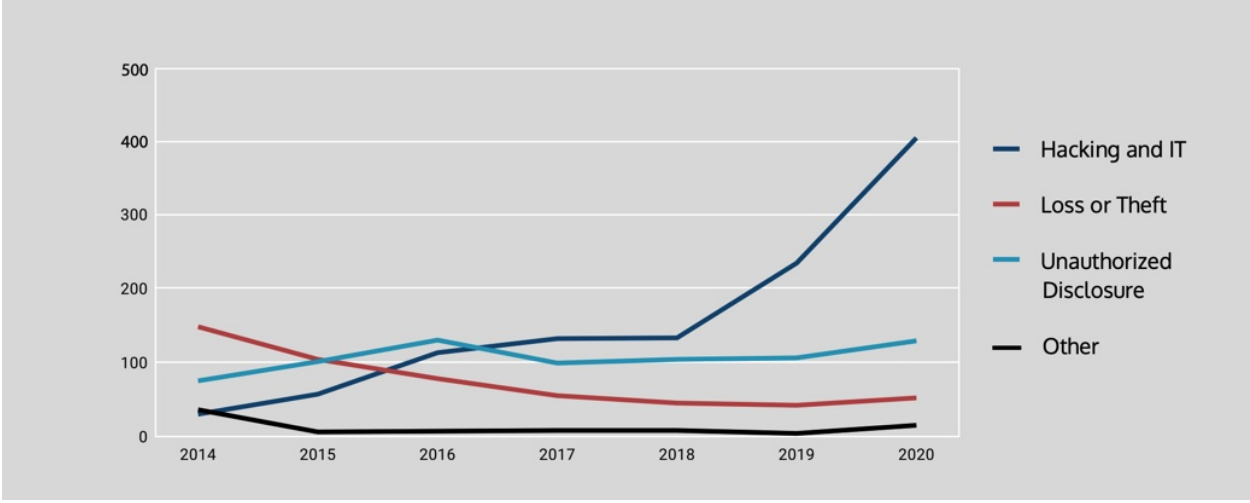The massive threat that hackers pose to all industries, including healthcare came into sharp focus again. Last year, healthcare data breaches spiked by 55% – an alarming rate!!!
T-Mobile Data Hack
Recent cyberattack exposed more than 54 million people to greater risk of fraud and identity theft at leading wireless network operator! It appears that criminals also gained access and have stolen AT&T customer data.
There were nearly 600 healthcare data breaches in 2020, a 55% jump from 2019. Not only did the number of data breaches spike in the past year, but the average cost per breach increased by about 10%.
Data breaches in healthcare are becoming more common — and more expensive.
Several major providers announced they suffered data breaches in 2020, with Pittsburgh-based UPMC and Omaha-based Nebraska Medicine being the latest to share their experience. Those breaches alone affected 255,000 individuals.
Further, the average cost of a breach in healthcare has increased 10.5% from 2019 to 2020, the new report shows. The cost per breached record also rose to $499 last year from $429 the year prior, a 16.3% jump.
Data shows that hacking and IT incidents led to 67.3% of all healthcare breaches in 2020. This is more than three times that of the next highest category, unauthorized disclosure, which led to 21.5% of breaches. Loss or theft of devices accounted for only 8.7% of breaches, a far cry from 2014 when these were the leading causes of security breaches in healthcare.

Graph: Causes of Breach – Year Over Year
In 2020, hacking and IT incidents exposed healthcare information from 24.1 million breached records — which represents 91.2% of all breached records.
“These results demonstrate the heightened impact of cybersecurity breaches, the shifting strategies of malicious actors, as well as how healthcare organizations are grappling with cybersecurity in today’s dynamic, cloud-first world.
*Information and stats quoted from a report published by cloud security company Bitglass
